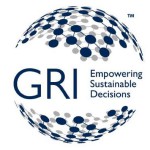Managing social issues is a critical reputation asset, vital for the survival of todays corporations. This was the message today at the World Business Council for Sustainable Developments London launch of its second report on Corporate Social Responsibility, Making Good Business Sense.
Corporate social responsibility is about doing smart business, said WBCSD president Björn Stigson in his opening address. Although the rationale for the existence of business is to generate returns for its shareholders and investors, business leaders also need to satisfy a much broader group of stakeholders in far-reaching countries. This is particularly relevant in the context of increased globalization.
Making Good Business Sense is co-authored by two leading business figures, Phil Watts of Royal Dutch/Shell Group and Lord Holme of Rio Tinto, who also authored the WBCSDs first CSR report Meeting Changing Expectations. It was developed through dialogues between business and non-business stakeholders worldwide including in six non-OECD countries and therefore captures the meanings of CSR in different parts of the world. We have talked to many people, inside and outside business, in every continent and with many different perspectives. We are glad to say that there is a growing recognition that business is part of the solution to creating a more stable, healthy and prosperous world, said Mr. Watts.
The report also offers hands-on tools to help companies tackle their social challenges, and provides pointers on how to anchor social responsibility in business strategies. Further, the report deals with the question of measurement to help companies measure the extent to which they enhance economic development, ensure environmental protection and promote social equity.
Because no single set of CSR progress indicators suits all companies, the report devises a 12-point navigator to guide companies through the social challenges and dilemmas. The navigator is not about precision but about vision, and can pivot freely to respond to individual company needs. There is no one size fits all approach to CSR as the vigor with which each company pursues its social vision is unique, Lord Holme emphasized.
The WBCSD is a coalition of 120 companies united by a shared commitment to sustainable development. Its members are drawn from 30 countries and more than 20 major industrial sectors. The organization also
benefits from a thriving global network of national and regional business councils and partner organizations, representing more than 600 business leaders. Phil Watts and Lord Holme are members of the WBCSDs
executive committee.



